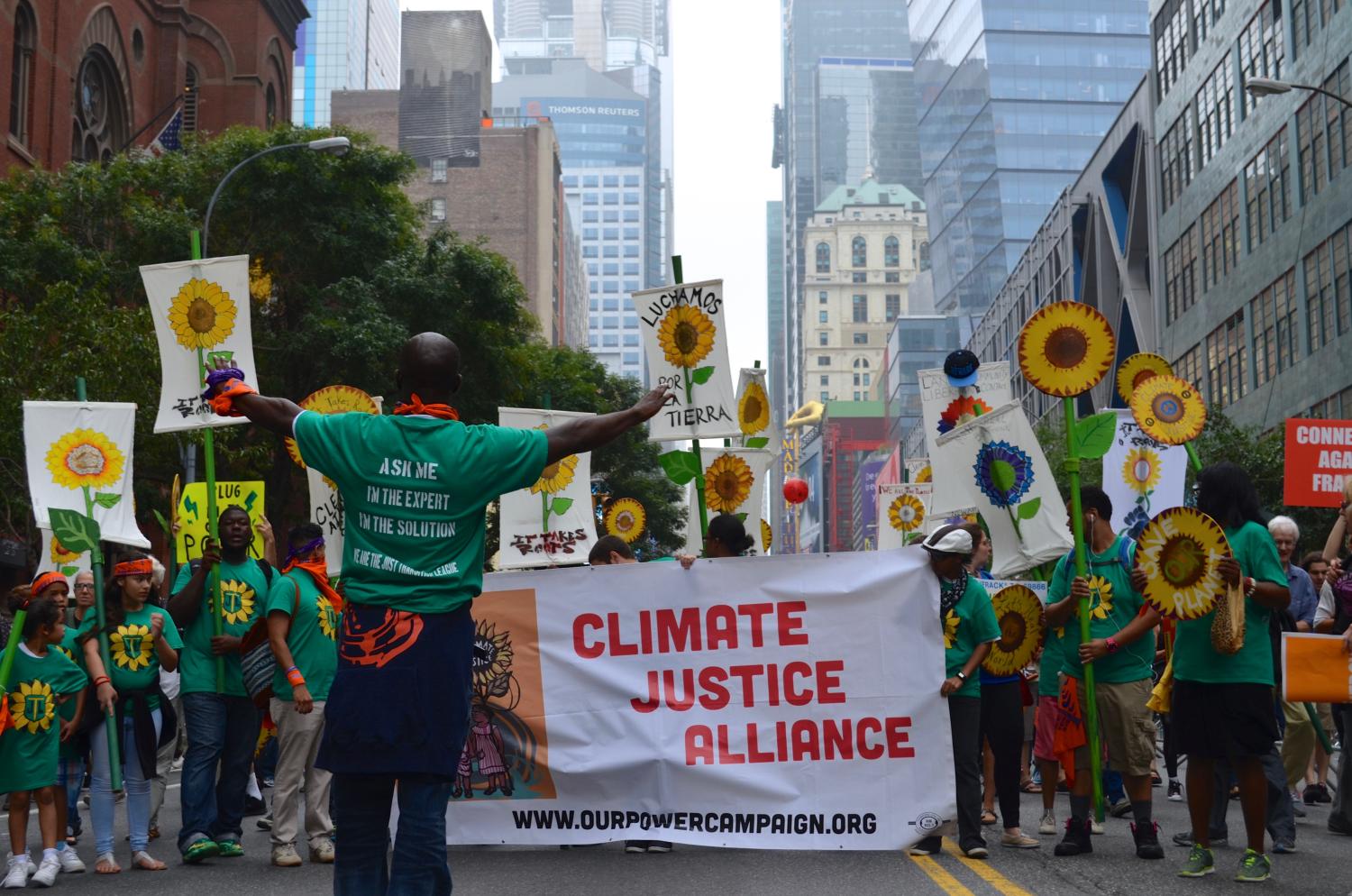JTC Interim Executive Director speaks on KGNU Radio about Boulder Climate Plan and social justice

Posted: December 5, 2016 at 10:53 am by KGNU News, in Breaking News, Featured, Morning Magazine
Click here to listen to the radio interview. If you live in one of the 49 least developed countries in the world you are five times more likely to die from a climate related disaster. It’s the same situation in the United States. Disasters like Hurricane Katrina and Hurricane Sandy disproportionately impact low income and communities of color. Generally those that contribute least to the problem of climate change in terms of green house gas emissions and high consumptive life styles, are disproportionately impacted by the effects of climate change.
The Just Transition Collaborative (JTC) was formed in July of 2016 at CU Boulder with a goal of ensuring that environmental and social justice measures are included in plans to move from fossil fuels to an economy based on renewable sources of energy.
David Ciplet, the interim Executive Director of the JTC says it was formed with the intent “of really looking at how we can ensure that our transition to a renewable energy economy and off of fossil fuels is addressing the concerns of those that are most directly impacted by a changing climate and by a shift to this new green economy. And so for example we can look at if Boulder is moving towards climate change and shifting to renewable energy, does public money…is that going to support low income households that would like to see the benefits of cheaper electricity? Would subsidies support just private homes for on-roof solar or do we see low income housing have opportunities to have access to solar? If we’re going to see green jobs that are created are these going to be living wage jobs and are they going to be accessible to all groups and particularly to underrepresented groups and racial minorities?”
Ciplet says that at a national level says that at a national level, major environmental groups have not focused on issues that directly impact low income communities and communities of color. “There’s been a focus on the environment as wilderness and not always on the environment as where we live work, play and pray, this is the foundation of the environmental justice movement to look at the environment of where we are.” Ciplet says that in environmental organizations and environmental agencies, individuals of color and women are underrepresented “I think that has to do with a legacy, a history of excluding the concerns of communities of color and low-income communities in favor of defining the environment as something that is out there instead of here.”
Communities of color and low-income communities bear disproportionate burden of the impacts of a changing climate. In cases of environmental disasters like the floods of 2013 in Colorado, low income communities were devastated when several mobile home parks were destroyed in Boulder County. Those mobile home parks were never replaced and increasing housing prices have led to the permanent displacement of many of those communities. Ciplet says that is a phenomenon known as climate gentrification.
The JTC has been working with the City of Boulder to include language on environmental and social justice into the Climate Action Plan that will be voted on, Tuesday December 6th. The JTC has organized several community events with other social justice groups to get input from diverse communities within Boulder County on what a socially just climate plan would look like. Ciplet says the current plan features a socially just transition framework and objectives in three major areas including: a focus on inclusive policy processes and building leadership in under represented groups; a focus on socially just green jobs and building an inclusive green economy that has living wage jobs; and a focus on energy prices, to ensure that the benefits of renewable energy are shared broadly particularly among those groups that have the most at stake in this transition. Click here to listen to the radio interview.

